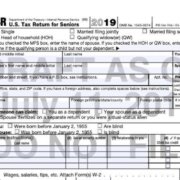
This year’s individual deadline for 2015 was April 18, 2016. What happens if it was missed? The urgency in getting your taxes filed is really dependent upon whether you’re expecting a refund or you owe additional taxes.
If you are unable to file your return by the original due date, the IRS allows you to file an extension giving you an additional six months to file your taxes. It is important to note that this is simply an extension of time to file your taxes and not an extension of time to pay any amounts due. If you do not pay the anticipated balance owed by the original due date, you may be subject to additional interest and penalties.
I’m Getting a Refund
If you are expecting a refund, you have until April 18, 2019, in order to file your return and claim the money due to you. You are currently providing an interest-free loan to the government. If the statute of limitations runs out prior to filing your return, the government gets to keep your money.
I Will Have a Balance Due
If you anticipate that you will owe taxes, then the situation becomes much more difficult. If you did not file for an extension, you are now subject to both interest and penalties. In addition, unlike being in a refund situation, if you do not file a return when a balance is owed, the government has an unlimited time to demand payment. In some instances, they will file a tax return on your behalf and send you a bill for any balance they believe you owe.
There are a number of penalties that you become subject to when you do not file your return with a balance owed. The failure to file penalty (FTF) is assessed at a monthly rate of 5% of your balance. The maximum amount of the penalty is 25% of any amount owed.
The failure to pay penalty (FTP) is incurred when you fail to pay the estimated amount owed by the April 15th deadline. It is assessed at a rate of 0.5% of the balance owed per month up to a 25% maximum of the amount due.
In cases where both penalties apply, the failure to file penalty is reduced by the failure to pay penalty. These two penalties are automatically assessed by the IRS.
If you have a balance due, you may also be subject to underpayment penalties. These can vary depending on your specific circumstance.
Even if you are unable to pay the amount owed to the IRS, it is imperative that you file your return. The IRS will then allow you to work with them on a payment plan to pay off your debt. In some extreme cases, you may be eligible to negotiate an offer in compromise with the IRS allowing you to pay a significantly reduced portion of the balance that you owe. The eligibility requirements for being approved for an offer in compromise from the IRS are very stringent. Your tax professional can help you in walking through this process and determining your eligibility.
If this is the first time you have missed the filing deadline, there may be some good news for you. The IRS has a first-time abatement penalty waiver which allows qualifying taxpayers to eliminate failure to file and failure to pay penalties for a single return period.
In order to qualify, taxpayers must not have been subject to any significant amount of penalties in the previous three years. You must also be in compliance with all other filing and payment obligations.
Taxes are already difficult enough. Missing the due date without a timely filed extension makes things that much more complicated for taxpayers who owe money to the IRS. Consult your tax advisor for help with all your options to get back into the IRS’s good graces.










